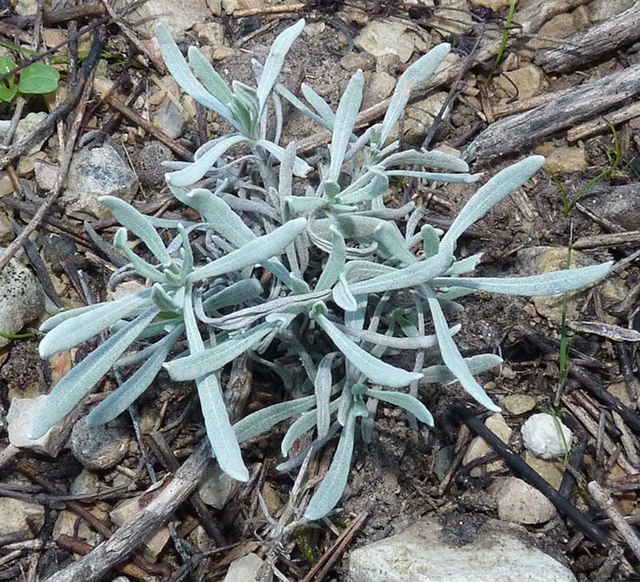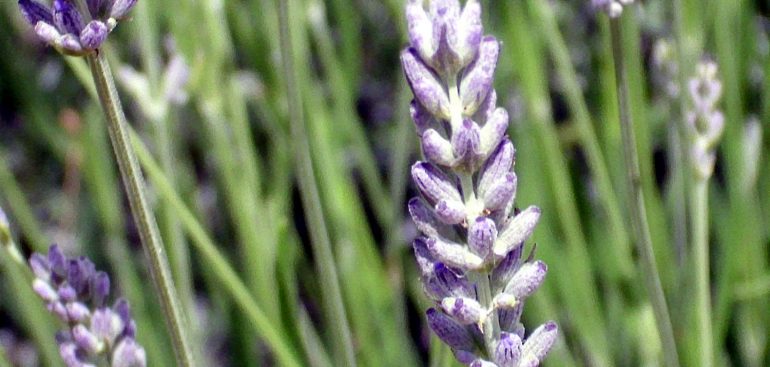Lavandula latifolia is a small shrub of the Lamiaceae family that grows in calcareous and dry hills of south of Europe. It is called “espígol mascle” in Catalan, “alhucema” in Spanish, “grande lavande” in French and “spike lavender” in English. Its former Latin name, Lavandula aspic, originates from the fact that it was traditionally used to cure snakebites (aspis means snake in Latin), by rubbing the plant directly onto the bite.
Spike lavender (Lavandula latifolia) can be easily mistaken for true lavender (Lavandula angustifolia). However, true lavender grows at higher altitudes, it’s a shorter bush, its leaves are narrower, blooms earlier, and its flowers are of a more intense purple. Both plants are cultivated to obtain essential oils from their flowering tops, but the resulting oils are quite different: while the essential oil of spike lavender contains linalool (34-50%), 1,8-cineol (16-39 %), camphor (8-16%), and has a spicy, green-floral and camphoraceous aroma, true lavender contains linalool (35-55 %), linalyl acetate (20-40 %) and (E)-β-caryophyllene (1-3 %) and has a sweet, floral and herbaceous smell.
Because of such differences in composition, the essential oils coming from these two plants have entirely different indications. While the oil of true lavender is very well-known for its relaxing properties, spike lavender oil is considered a must-have oil in emergency kits, as it soothes insect bites, burns and skin irritations. These indications recall its traditional use against snake bites. The oil acts by modulating how the brain perceives pain, and by having anti-inflammatory activity via the inhibition of lipoxygenase and by promoting cicatrization.
Spike lavender oil can be used to treat fungal dermatitis in humans and pets. It has shown antibacterial effect against E. coli and methicillin-sensitive and methicillin-resistant Staphylococcus aureus (MSSA and MRSA). A product that contains spike lavender oil, together with other ingredients, has shown antiviral activity against African Swine fever virus, an important disease that affects pig farms worldwide.
Furthermore, in clinical trials, two commercial products based on Spike lavender oil have shown to be effective in the treatment of uncomplicated acute bronchitis and acute viral rhinosinusitis in adult patients.
For all the indications we have laid out, spike lavender essential oil is really one of the most useful in the emergency kit, it is definitely needed in the first aid kit at home, and we should not forget it when we go out on a hike or travel.

Pictures: Javier Martín; Bertrant Bui, via Wikimedia Commons

